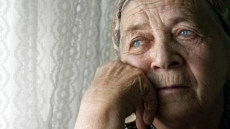Swedish women who avoid sunshine shorten their lifespans by the same amount as smoking. This latest research was just published in the Journal of Internal Medicine. Like the Swedes, Canadians need to balance the benefits of sun exposure with the risks. It is not healthy to avoid sunshine, which provides the ultraviolet light that makes vitamin D, says the Vitamin D Society.
Between 1990 and 1992, 30,000 Swedish women were surveyed about risk factors for malignant melanoma the worst form of skin cancer. For the next 20 years, the women’s death records were followed. Those women with active sun exposure habits were at a lower risk of death from cardiovascular disease and causes of death other than cancer or heart disease, causes such as diabetes, multiple sclerosis and pulmonary disease.
Compared to those with the highest sun exposure, life expectancy for women who avoided sun was shorter by .6 to 2.1 years. The lead author of the report, Dr. Pelle Lindqvist, put it another way: “We found smokers in the highest sun exposure group were at a similar risk as non-smokers avoiding sun exposure, indicating avoidance of sun exposure to be a risk factor of the same magnitude as smoking.” He went on to conclude that, “Guidelines being too restrictive regarding sun exposure may do more harm than good for health.”
While it’s important to avoid burning in the sun, the Canadian-based Vitamin D Society has long advocated the health benefits of safe sun exposure for short periods.
“Most of our vitamin D supply comes from exposure of skin to sunshine. We are coming out of a vitamin D winter. Starting in April, the UV index in Canada is again high enough to produce vitamin D in skin. Higher levels of vitamin D have long been related to lower risk of serious diseases, such as cancer, heart disease, diabetes, multiple sclerosis, and osteoporosis.” said Dr. Reinhold Vieth, Scientific Advisor for the Vitamin D Society and professor at the University of Toronto. “This latest research from Sweden supports our position that Canadians trying to avoid skin cancer by staying completely out of the sun increase risk of other illnesses. Nothing is all good or all bad. Moderate sunshine has always been known to be good for us. Know yourself, by knowing how much sunshine suits your skin type. We need to avoid burning or making skin turn painful or red.”
Approximately 12 million Canadians do not meet the goal of a vitamin D blood level of at least 50 nmol/L as specified by Health Canada and the Institute of Medicine. This figure rises to 14 million — 40% of us — during winter months. Compounding the problem, more people work indoors and spend less time outdoors than at any previous time in history. In addition, when people are outside, many use sunscreens, which, if applied as directed, can significantly prevent the production of vitamin D in the skin. As a result, many Canadians experience decreasing vitamin D levels and the risk of serious health problems.
“As we head into spring, Canadians will be able to fill their vitamin D tanks by exposing their skin to the sun for roughly 15 to 30 minutes in the mid-day hours. Afterwards, we recommend they put on sunscreens or light clothing to prevent damage from burning,” said Dr. Vieth.
Dr. Lindqvist and his colleagues said their research warrants a further examination of sun exposure guidelines. “Our findings indicate that UV exposure might have opposing effects on different health issues. Therefore, national guidelines should be based on careful weighing of both hazards and benefits,” the study concluded.






